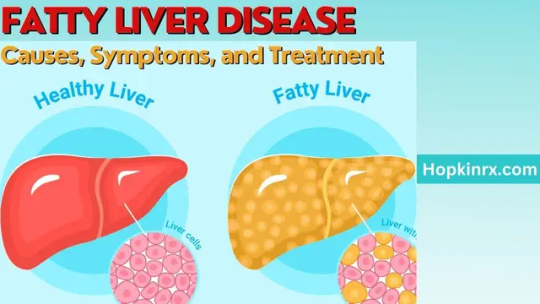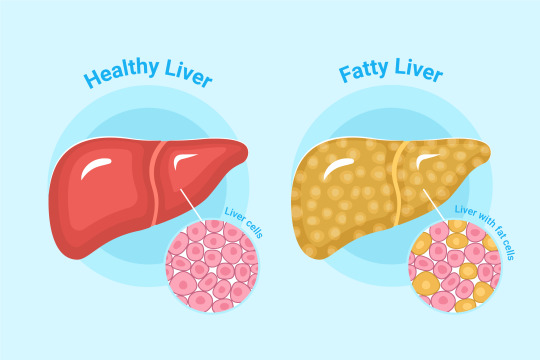#liver care
Text
The liver is an important organ of the human body that plays out various basic capabilities like detoxification, digestion, and protein synthesis.
#liver detox#liver damage#liver disease#world liver day#livermore#liver function test#liver care#fatty liver#liver transplant#liver treatment#liver symptoms
2 notes
·
View notes
Text
WE ARE ONE OF THE LEADING MANUFACTURER OF PHARMACEUTICALS, @NUTRACEUTICALS, VETERINARY, AYURVEDIC & COSMETIC PRODUCTS IN INDIA.

#SKIN CARE#ORTHO CARE#NEURO CARE#BODY CARE#skincare tips#skin treatment#skin health#hair care#liver care#beauty products#cosmetics#skincare#face care#pain care#LIVER PRODUCT#FEMALE WELLNESS#DIGESTIVE PRODUCT#MASSAGE OIL#MOTHER & CHILD CARE#KIDS BODY LOTION#KIDS FACEWASH#KIDS DRY SYRUP
1 note
·
View note
Text
Discover our effective Ayurvedic fatty liver syrup, formulated with natural ingredients to support liver health and aid in the management of fatty liver disease.
Boost your liver function and overall wellness with our herbal solution."
0 notes
Text

what causes Jaundice and the treatment options for Jaundice
Jaundice is caused by an excess of bilirubin in the blood, resulting from conditions like liver diseases (hepatitis, cirrhosis), hemolytic anemia, bile duct obstructions (gallstones, tumors), and genetic disorders (Gilbert's syndrome).
Treatment of Jaundice focuses on addressing the underlying cause and may include medications, lifestyle changes, surgical procedures, and supportive therapies like phototherapy for newborns.
Read more
0 notes
Text
LIV PURE: A Comprehensive Look at the Revolutionary Supplement
The liver is a imperative organ that plays a critical part in different metabolic forms, counting fat digestion system. When the liver is compromised, it can lead to a heap of well being issues, counting the amassing of overabundance fat, especially around the paunch. Understanding why liver issues can lead to expanded fat, particularly paunch fat, requires a closer see at the liver's capacities and the affect of its brokenness on the body's metabolic processes.
Obesity-related conditions include:
Tall blood pressure
Tall cholesterol and heart disease
Stroke
Sort 2 diabetes
Certain sorts of cancer (endometrial, breast, colon, kidney, gallbladder, and liver).
Symptoms
Loud snoring.
Episodes in which you stop breathing during sleep — which would be reported by another person.
Gasping for air during sleep.
Awakening with a dry mouth.
Morning headache.
Difficulty staying asleep, known as insomnia.
Excessive daytime sleepiness, known as hypersomnia.
READ MORE
#liver disease#liver care#liver cancer#belly fat#fatty#obesity#gaining weight on purpose#fat piggy#cute belly#usa news
0 notes
Text
Wellbeing Nutrition Slow Liver Health Capsules

Wellbeing Slow Liver Health capsules reduce oxidative stress and maintain a healthy immune system. It helps with liver detoxification and protection.
0 notes
Text
Explore the comprehensive guide on Inflammatory Bowel Disease (IBD), covering symptoms, causes, and effective treatments. Discover valuable insights from Dr. Vatsal Mehta at Alfa Gastro and Liver Care, Ahmedabad.
#crohn's disease#ulcerative colitis#inflammation#inflammatory bowel diseases#Symptoms#Causes#Liver Care#Alfa Gastro#Alfa Gastro and Liver Care#Vatsal Mehta#gastroenterologist
0 notes
Text

"Our program offers children with complex pancreas and liver disorders hope that few places in the world can match. My transition to Nationwide Children’s Hospital has been everything I had hoped it would be and I look forward to continuing to build on the amazing start I have had here in Columbus."
A. Jay Freeman, Physician, Medical Director of Pancreatic Care, Pancreas and Liver Care Center
0 notes
Text
Improving your liver health
Enhancing the health of your liver is essential for general wellbeing because the liver is involved in several metabolic processes and detoxification. Here are detailed recommendations to improve the health of your liver:1. Keep a Healthy Diet:
Give fruits, vegetables, and whole grains priority. – Add lean proteins from foods like lentils, fish, and poultry. Refined sugars, trans fats, and…

View On WordPress
#ayurvedic Liver care#Healthy Liver#Himalaya liver care#Liver And Kidney Functionas#Liver care#Liver health#sugar free juice Liver Care
0 notes
Text
Could your liver be silently suffering? Learn the early signs of liver damage and explore expert-recommended tips to boost its health. Take action now!
#Liver health#Liver damage#Liver care#Signs of liver damage#Liver health tips#Strengthen liver#Liver detox#Liver support#Liver wellness#Healthy liver habits
0 notes
Text
Fatty Liver Disease: Important Causes, Symptoms, and Treatment
Fatty Liver Disease: Important Causes, Symptoms, and TreatmentIntroductionWhat is Fatty Liver Disease?Causes of Fatty Liver Disease Poor Dietary Habits Sedentary Lifestyle Obesity Alcohol ConsumptionSymptoms of Fatty Liver Disease Fatigue Abdominal Discomfort Jaundice SwellingDiagnosing Fatty Liver Disease Blood Tests Imaging Studies Liver BiopsyTreatment and Management Lifestyle Changes Balanced…

View On WordPress
#Alcoholic fatty liver#Fatty liver causes#Fatty liver complications#Fatty liver diagnosis#Fatty liver management#Fatty liver prevention#Fatty liver risks#Fatty liver symptoms#Fatty liver treatment#Hepatic steatosis#Liver and alcohol#Liver biopsy#Liver care#Liver cirrhosis#Liver damage#Liver disease progression#Liver exercise benefits#Liver function#Liver Health#Liver health tips#Liver inflammation#Liver steatosis#Liver-friendly diet#Non-alcoholic fatty liver#Obesity and fatty liver
0 notes
Text
Namdev organics में आपका स्वागत है
आर्डर करने के लिए
आप हमारी वेबसाइट से भी ऑर्डर कर सकते हैं :- www.namdevorganics.com
DIGOR-DS सिरप के लिए :- https://namdevorganics.com/product/ayurvedic-digor-ds-syrup/
कैप्सूल के लिए :- https://namdevorganics.com/product/ayurvedic-digor-ds-capsule/
Amazon पर आर्डर करने के लिए - https://www.amazon.in/gp/product/B0D3F4WN68/ref=ewc_pr_img_1?smid=AZJZEOCRJOM58&psc=1
हमारे स्वास्थ्य विशेषज्ञ से बात करें :- 77197-74417 & 77079-74417 80540-74417
0 notes
Text
What are the causes and treatment options for fatty liver disease?
Fatty liver or the process of hepatic steatosis is a pathological condition in which too much fat is stored in liver cells. It is a common condition that lies on a spectrum from mild to severe, and if left untreated can result in liver inflammation, fibrosis, and even liver failure.

There are two main types of fatty liver disease:
Non-alcoholic Fatty Liver Disease: This type of fatty liver disease occurs in individuals who do not consume excessive amounts of alcohol. It is often associated with obesity, insulin resistance (pre-diabetes or type 2 diabetes), high blood pressure, and high cholesterol levels. Non-alcoholic Fatty Liver Disease is considered the most common liver disorder in Western countries.
Alcoholic Fatty Liver Disease: As the name suggests, this type of fatty liver disease is caused by excessive alcohol consumption. The liver metabolizes alcohol, and chronic alcohol abuse can lead to the accumulation of fat in liver cells. Alcoholic Fatty Liver Disease can progress to more severe forms of liver damage, including alcoholic hepatitis and cirrhosis.
Several factors can contribute to the development of fatty liver disease:
Obesity: Excess body weight, particularly abdominal obesity, is a major risk factor for fatty liver disease. It increases the accumulation of fat in the liver and promotes inflammation.
Insulin Resistance and Diabetes: Insulin resistance, a condition in which cells become resistant to the effects of insulin, can lead to increased fat storage in the liver. Type 2 diabetes, which is often associated with insulin resistance, is also a risk factor for fatty liver disease.
High Levels of Triglycerides: Elevated levels of triglycerides (a type of fat) in the blood can contribute to the accumulation of fat in the liver.
Metabolic Syndrome: Metabolic syndrome is a cluster of conditions that includes obesity, high blood pressure, high blood sugar, and abnormal cholesterol levels. Individuals with metabolic syndrome are at increased risk of developing fatty liver disease.
Certain Medications: Some medications, such as corticosteroids, tamoxifen, and methotrexate, can contribute to the development of fatty liver disease.
Genetic Factors: Genetic factors may predispose some individuals to develop fatty liver disease, although the role of genetics in its development is not fully understood.
Rapid Weight Loss: Rapid weight loss, particularly through crash dieting or bariatric surgery, can lead to the mobilization of fat stores from peripheral tissues, including the liver, resulting in fatty liver disease.
Fatty liver disease is a complicated condition which development involves multifactorial etiology including genetic, metabolic, and lifestyle factors. Therefore, the development of fatty liver a disease is often caused by interplay of different contributing factors
The treatment options for fatty liver disease typically focus on addressing the underlying causes of the condition, reducing liver inflammation, and preventing the progression of liver damage.
Here are some common treatment approaches:
Lifestyle Changes:
Weight Loss: For individuals with non-alcoholic fatty liver disease (NAFLD) who are overweight or obese, gradual and sustained weight loss through a combination of diet and exercise is often recommended. Losing as little as 5-10% of body weight can significantly improve liver health and reduce fat accumulation in the liver.
Healthy Diet: Adopting a balanced and nutritious diet low in saturated fats, refined sugars, and processed foods can help reduce liver fat and improve overall metabolic health. A diet rich in fruits, vegetables, whole grains, lean proteins, and healthy fats (such as those found in fish, nuts, and olive oil) is recommended.
Regular Exercise: Engaging in regular physical activity, such as brisk walking, jogging, swimming, or cycling, can help burn excess fat, improve insulin sensitivity, and promote overall liver health.
Medications:
Insulin Sensitizers: Medications such as pioglitazone or metformin, which improve insulin sensitivity, may be prescribed to individuals with non-alcoholic fatty liver disease (NAFLD) and insulin resistance or diabetes. These medications can help reduce liver fat and inflammation.
Cholesterol-Lowering Medications: Statin medications may be prescribed to individuals with fatty liver disease and high cholesterol levels to help reduce the risk of cardiovascular complications.
Antioxidants: Some studies suggest that antioxidants such as vitamin E may benefit individuals with non-alcoholic steatohepatitis (NASH), a more severe form of fatty liver disease. However, the use of vitamin E for this purpose should be carefully monitored by a healthcare provider due to potential side effects.
Management of Underlying Conditions:
Control of Diabetes and Hypertension: Managing underlying conditions such as diabetes and high blood pressure is essential for preventing further liver damage and complications.
Alcohol Moderation or Abstinence: For individuals with alcoholic fatty liver disease (AFLD), reducing or eliminating alcohol consumption is critical to prevent further liver damage.
Regular Monitoring and Follow-Up:
Individuals diagnosed with fatty liver disease should undergo regular monitoring to assess liver function, liver enzymes, and other relevant markers of liver health. This allows healthcare providers to track disease progression, adjust treatment as needed, and intervene promptly if complications arise.
In some cases, individuals with advanced liver disease or complications of fatty liver disease may require specialized care, including referral to hepatologists (liver specialists) or consideration for liver transplantation.
The fatty liver treatment in Bangalore is multifaceted and often involves a combination of lifestyle modifications, medications, and management of underlying conditions. The primary goals of treatment are to improve liver health, prevent disease progression, and reduce the risk of complications.
The topic of liver care is just for your knowledge purposes. If you want to get treatment and a diagnosis for fatty liver disease, you have to contact liver care specialists or visit hospitals.
#liver care#fatty liver disease#fatty liver treatment in Bangalore#Liver Disease Treatment in Bangalore#liver inflammation#liver care hospitals#liver specialists in Bangalore#Fatty Liver
0 notes
Text
Say Goodbye to Liver Problems with ShuddhiHiims
Experience the power of Ayurveda and Panchkarma for liver care treatment at ShuddhiHiims. Restore and maintain your liver health with us.
0 notes

